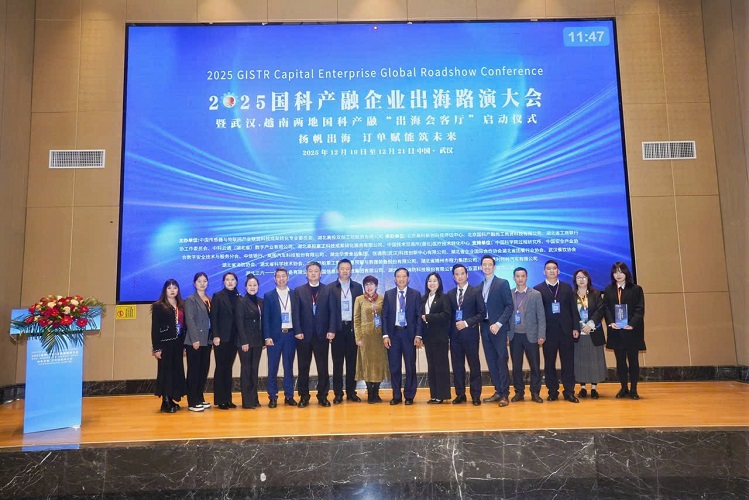Types of enterprises in Vietnam according to the Enterprise Law 2020
According to the Enterprise Law 2020 regulating the types of enterprises in Vietnam, there are 5 types of recognized companies and enterprises, including: 1-member limited liability company, 2-member limited enterprise, joint stock enterprise, partnership enterprise & private company.
Depending on the types of businesses in Vietnam, there will be different advantages and disadvantages. To have a better understanding of the above 5 types of companies, please join Siglaw to find out in the sections below.
Learning about all types of businesses in Vietnam
Type of 1-member limited liability company
Currently, the Enterprise Law in Vietnam defines a 1-member limited liability company as follows: “A one-member limited liability company is an enterprise owned by an organization or an individual (hereinafter referred to as the company owner). The company owner is responsible for the company’s debts and other property obligations to the extent of the company’s charter capital.”
From the definition and legal regulations, some characteristics of this type of business can be determined as follows:
- Owner: A 1-member limited liability company as the name implies has only one owner. That owner can be an individual or an organization.
- Ability to raise capital: A 1-member limited liability company is entitled to issue bonds, however, the company is not allowed to issue shares.
- Legal status: has legal status. Having legal status brings many important advantages to this type of 1-member limited enterprise. First, the business life of the enterprise becomes stable, separate from the life of the individual in the enterprise. This ensures stability and sustainability for business activities of enterprises. Second, legal status allows enterprises to participate in independent legal relations, creating trust and transparency in transactions.
- Liability regime: the owner of a 1-member limited liability company is only responsible to the extent of the charter capital of the company. This means that in a single-member Limited Liability Company, the company owner is responsible for the company’s debts and other property obligations to the extent of the company’s charter capital or in other words, the liability of the company owner is limited to the amount of capital that they have invested in the company.
If the company encounters financial difficulties or has debts, the company owner is not liable for personal assets that exceed their charter capital. The extent of the owner’s liability is limited, and they do not have to use personal assets in addition to the contributed capital to be liable for the company’s debts and obligations.
Advantages
- A one-member limited liability company has a relatively low capital investment, the establishment and operation process is simpler than some other types of companies, such as joint stock companies. It also has great flexibility in deciding and changing business operations.
- Simple management: Due to the fact that there is only one owner, managing the company becomes simpler and easier. Owners can make decisions quickly and easily run the business.
- It is not necessary to find a partner to co-establish a business.
- Limited liability regime, separate from personal property.
Restrictions
- The mobilization of capital from many sources of the type of 1-member limited liability company will be limited
- Capital must not be withdrawn directly, but by transferring part or all of the capital to another organization or individual.
- Because of limited liability, it is often more difficult to build trust with a counterparty
- Wages paid to Owners are not included in reasonable expenses when calculating corporate income tax.
Type of limited liability company with 2 or more members
- Members: can be organizations, individuals. Number of members from 02 to 50 members
- Ability to raise capital: A 2-member limited liability company is entitled to issue bonds, however, this type of company is not allowed to issue shares
- Legal status: have legal status
- Liability regime: members of a two-member limited liability company are only liable to the extent of their contributed capital
Advantages
- Limited liability regime, separate from personal property
Restrictions
- Since the business type is limited liability, it is often more difficult to build trust with partners
- The company’s raising of capital from multiple sources will be limited
Type of joint-stock enterprise
A joint stock company (JSC) is a type of enterprise in Vietnam where equity is divided into shares. A joint-stock company is established by at least three shareholders and there is no limit on the number of shareholders. Thus, it can be seen that the joint stock company has the following characteristics:
- Members: minimum 03 shareholders and no maximum limit
- Ability to raise capital: A joint stock company is the only type of enterprise that has the right to issue shares to attract capital from investors. Joint stock companies can list shares on the stock exchange.
- Legal status: have legal status
- Liability Regime: Shareholders are only responsible for the capital they have invested in the company, usually the share purchase amount. This means that if the company experiences financial difficulties or goes bankrupt, shareholders are not subject to unlimited personal liability for the company’s debts and other obligations.
Advantages
- Limited Liability Regime
- Simple procedure for transferring shares
- The ability to raise capital of the type of joint stock company is very high
- Entitled to list and trade shares on the stock exchange.
Restrictions
- Complex corporate organizational structure
- Difficulty making a decision
- Additional costs when transferring shares
Type of partnership
- Members: there are at least 02 general partners who are common owners of the company and do business together under a common name. Members of a partnership are classified as follows:
- General partners: can only be individuals, unlimited liability i.e. general partners will be liable with all their assets for the obligations of the company;
- Capital contributors: can be organizations or individuals. For capital contributors, capital contributors will only be responsible for the company’s debts to the extent of the amount of capital committed to contribute to the company without unlimited liability as general partners.
- Ability to raise capital: A partnership is not allowed to issue any securities
- Legal status: have legal status
- Liability regime: As analyzed above, depending on the type of member of the liability partnership, it will be different. General partners will have unlimited liability and capital contributors will have limited liability.
Advantages
- The management of the type of partnership is not too complicated;
- General partners are individuals with high professional qualifications and professional reputation. This creates trust for partners.
- Banks are easier to lend and forbearance
- Compact organizational structure, easy to manage.
Restrictions
- Unlimited liability, so the level of risk of general partners is very high. When general partners withdraw from the company, they are still liable for the company’s debts
- The company’s raising of capital from multiple sources will be the most limited
Type of sole proprietorship
According to the concept introduced by the Enterprise Law 2020: “A private enterprise is an enterprise owned by an individual and is solely responsible with all his assets for all activities of the enterprise.”. From this definition, it can be seen that the type of private company has the following characteristics:
- Members: owned by an individual. One caveat: each individual is only entitled to establish a single private business. If you are already the owner of a private enterprise, you will not be able to concurrently be a general partner of a partnership or the owner of a business household. In addition, private enterprises are also not entitled to contribute capital to establish or buy shares or contributed capital in limited companies, partnerships or .
- Ability to raise capital: Like partnerships, private enterprises are not allowed to issue any securities
- Legal status: this is the only type of company that does not have legal status
- Liability regime: The owner of a private enterprise will have unlimited liability, with all his assets, without separation between personal assets and company assets for all activities of the private enterprise.
Advantages
- Business owners take the initiative in deciding all issues related to the business.
- A sole proprietorship is the only type of company where the business owner has the right to sell his or her business to someone else.
Restrictions
- No legal status
- The risk is higher when you are liable with all your assets.
- The company’s raising of capital from multiple sources will be the most limited
- Limitations in business activities when not being allowed to contribute capital to establish or buy shares in other types of enterprises.
- Have only the right to establish a private enterprise.
What is the most popular type of business in Vietnam?
The most popular types of enterprises in Vietnam are 1-member limited liability companies, limited liability companies with 2 or more members and joint stock companies. These three types of companies converge the most advantages when there is flexibility in management, the ability to attract investment capital easily and simpler establishment procedures.
Most specifically, members will only have limited liability in the contributed capital/charter capital, so individuals can limit risks when personal assets are separated from company assets in all activities.
What type of company to choose in Vietnam
The choice of the type of business in Vietnam to set up depends on many factors, including business size, goals, finances, management, legal, and many others. Investors and businesses need to consult and carefully study the characteristics of various types of businesses in Vietnam to choose the type of company that best suits their needs.
Consulting services for all types of businesses in Vietnam & business establishment;
| ✅Incentives | ⭐Free consultation when using business establishment services of Siglaw law law firm |
| ✅Experience | ⭐More than 10 years of experience in consulting documents and procedures on various types of businesses in Vietnam |
| ✅Siglaw Team | ⭐Lawyers of Siglaw Law Firm are highly qualified and experienced legal professionals |
| ✅Cost | ⭐Contact hotline 0961 366 238 for an accurate quotation. |
Above is information on the topic “Types of businesses in Vietnam” from the staff of Siglaw Law Firm. If you still have any problems to solve, please contact Siglaw for free support quickly
Phone: (+84) 961 366 238
Email:
- vphn@siglaw.com.vn
- vphcm@siglaw.com.vn
Headquarters: No.44/A32-NV13, Gleximco A, Le Trong Tan Street, Tay Mo Ward, Ha Noi.
Southern branch: No.103 – 105 Nguyen Dinh Chieu Str., Xuan Hoa Ward, Ho Chi Minh.
Central branch: 177 Trung Nu Vuong, Hai Chau District, Da Nang City
Facebook: https://www.facebook.com/hangluatSiglaw









